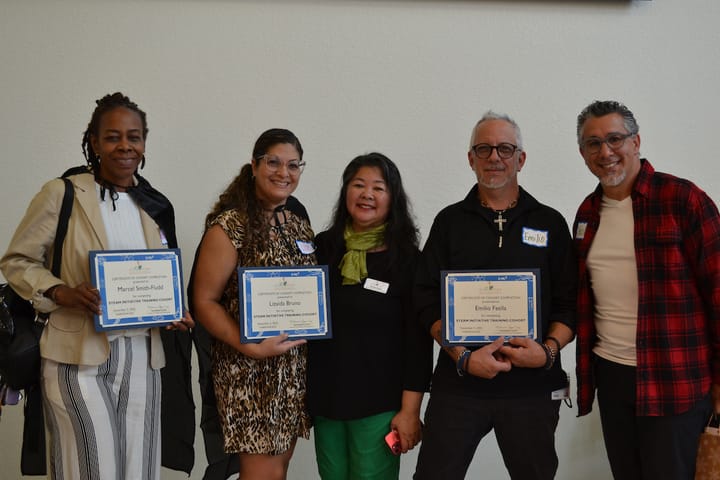Prime Time is Now Offering More Series-Based Trainings Virtually
A growing consensus of researchers has found that ongoing professional development is more effective than traditional one-time trainings.* In order to give out-of-school time (OST) practitioners time to learn, practice and reflect on new youth development strategies, Prime Time is revising its a training calendar to reflect a greater amount of series-based trainings beginning September 2020. Through a series of three online training sessions, a community of practice with peers, and coaching/support sessions, OST staff will participate in meaningful professional learning that translates to changes in practice at their programs.
In order to support OST practitioners in choosing the training series that will be the most beneficial for increasing knowledge and skills, Prime Time will require that each practitioner begin with The Progressive Afterschool Practitioner training. We will offer this training live (online) and as a self-paced online module each week. This training helps practitioners to navigate the Core Competencies for Afterschool Practitioners needed to create a personalized training plan. CLICK HERE to register for The Progressive Afterschool Practitioner.
Once practitioners have taken The Progressive Afterschool Practitioner training and completed their Individual Career Plan, they may register for a training series on our website. Additional support will be provided to help with refinement of plans and to support each practitioner with choosing the best series to start their professional development journey.
*Though research has not yet identified a clear threshold for the duration of effective PD models, it does indicate that meaningful professional learning that translates to changes in practice cannot be accomplished in short, one-off workshops. Randel, B., Apthorp, H., Beesley, A. D., Clark, T. F., & Wang, X. (2016). Impacts of professional development in classroom assessment on teacher and student outcomes. The Journal of Educational Research, 109(5), 491–502.



